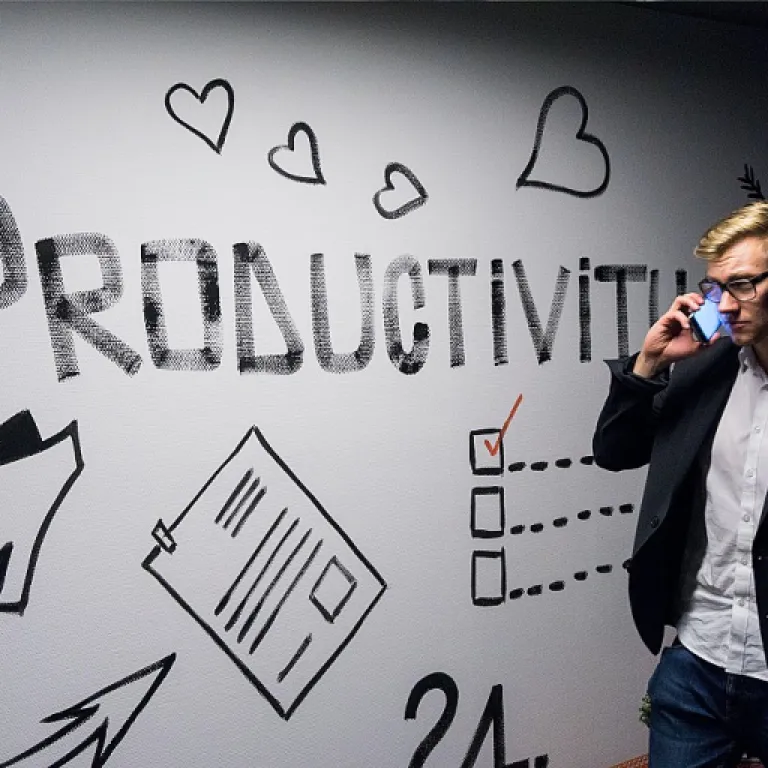
Understanding the impact of workplace parking on employee morale
Parking as a Daily Experience for Employees
For many employees, the parking experience is the first and last interaction they have with the workplace each day. Whether it’s searching for a parking spot in a crowded lot, dealing with a confusing parking system, or facing the cost of company parking, these moments can set the tone for the entire workday. When parking spaces are limited or poorly managed, staff may feel stressed before even reaching the office. On the other hand, a well-organized parking strategy can help employees start their day with less frustration and more focus on their work.
Why Parking Matters for Employee Satisfaction
Employee satisfaction is closely linked to the ease and accessibility of parking at work. When staff parking is convenient, employees are more likely to arrive on time and feel valued by management. Conversely, a lack of parking spaces or unclear parking policies can lead to dissatisfaction and even impact retention. Companies that invest in smart parking solutions, such as real-time booking systems or designated parking spots, often see improvements in morale and productivity. These efforts show that management recognizes the daily challenges employees face and is committed to making their work environment more supportive.
- Easy access to parking spaces reduces stress and saves time for employees.
- Clear communication about parking policy helps avoid confusion and conflict.
- Offering alternatives like public transport incentives can address limited parking lot capacity.
- Transparent park management demonstrates fairness and respect for staff needs.
Parking and the Broader Employee Experience
Parking is just one part of the overall employee experience, but it can have a significant impact on how staff perceive their workplace. When companies address parking management proactively, they send a message that employee well-being matters. This attention to detail can also complement other initiatives, such as creative food ideas for employee appreciation day, further enhancing the sense of community and support at work. Ultimately, a positive parking experience contributes to a more satisfied and engaged workforce.
For more inspiration on boosting employee morale, check out these creative food ideas for employee appreciation day.
Common communication challenges around parking policies
Why parking policies often cause confusion
Parking is a daily concern for many employees, yet communication about parking policies in the workplace is often unclear. Companies may introduce new parking management systems or change the allocation of parking spaces, but staff are not always informed in a timely or transparent way. This can lead to misunderstandings about who is eligible for a parking spot, how to use the booking system, or what to do if the car park is full.
Common sources of frustration
- Lack of clarity: Employees may not know how the parking policy works or how to reserve a parking space.
- Inconsistent enforcement: Some staff might feel that parking rules are not applied equally, leading to perceptions of unfairness.
- Poor real-time updates: Without a system to show available parking spots, staff waste time searching for a space, impacting their work schedule.
- Limited accessibility: Employees with disabilities or those who rely on public transport part-time may find it hard to access suitable parking spaces.
- Cost transparency: Unclear communication about parking costs or changes in fees can cause dissatisfaction.
Communication gaps between management and staff
Effective communication about parking management is essential for employee satisfaction. When management does not provide regular updates or fails to listen to staff feedback, trust can erode. Employees may feel their concerns about parking lots, cost, or access are ignored. This can lead to increased complaints and even impact morale, as discussed in other parts of this article.
Improving the parking experience through better messaging
Companies need to use clear, consistent channels to communicate about parking strategy and policy changes. This includes sharing updates about parking spaces, system upgrades, or changes in the car park layout. Providing detailed FAQs, visual guides, or real-time notifications can help staff understand how to navigate the parking lot and make the most of available spaces.
For more ideas on fostering a positive workplace culture through thoughtful communication, you can read about crafting heartfelt Thanksgiving messages for your team.
Strategies for effective HR communication about parking
Building Clarity and Trust in Parking Communication
Clear and transparent communication about parking policies is essential for employee satisfaction and effective workplace management. When companies introduce or update a parking policy, employees need to understand how parking spaces are allocated, the process for booking a parking spot, and any changes in the parking lot system. Ambiguity can lead to frustration, wasted time, and even conflict among staff, especially when parking spaces are limited or in high demand.
Key Elements of Effective Parking Communication
- Accessible Information: Ensure all staff have easy access to up-to-date details about the parking policy, including eligibility, costs, and the process for securing a space. Use multiple channels such as email, intranet, and office notice boards.
- Consistent Messaging: Align communication across departments so that employees receive the same information from HR, management, and facilities teams. This reduces confusion and builds trust in the system.
- Feedback Mechanisms: Provide a clear way for employees to ask questions or raise concerns about the parking experience. This could be through regular surveys, suggestion boxes, or a dedicated contact person for parking management.
- Real-Time Updates: Use digital tools or smart parking systems to inform staff about parking lot availability in real time. This helps employees plan their commute and reduces stress related to finding a parking spot.
Practical Steps for HR and Management
HR and management teams should regularly review the effectiveness of their parking strategy. This includes monitoring how parking spaces are used, gathering employee feedback, and making adjustments to the policy as needed. Transparent communication about any changes—such as new booking systems, adjustments in staff parking allocation, or incentives for using public transport—can help maintain employee satisfaction and support a positive workplace culture.
For companies looking to stay ahead in workplace communication, exploring future-focused HR communication strategies can provide valuable insights into managing parking and other employee needs as work environments evolve.
Addressing fairness and accessibility concerns
Ensuring Equal Access to Parking Spaces
Fairness in workplace parking is a frequent concern among employees, especially when parking spaces are limited or located far from the office. Companies often face challenges in balancing the needs of staff who drive, those who use public transport, and employees with accessibility requirements. A transparent parking policy is essential for maintaining employee satisfaction and trust in management decisions.
- Transparent allocation: Clearly explain how parking spots are assigned, whether it’s by seniority, lottery, or a booking system. Employees appreciate knowing the criteria and having equal opportunities to access parking spaces.
- Accessibility considerations: Reserve parking spots close to the office for staff with disabilities or special needs. This demonstrates a commitment to inclusivity and legal compliance.
- Alternative transportation: Encourage the use of public transport or carpooling by offering incentives or flexible parking strategies. This can help reduce demand for parking lots and promote sustainability.
- Cost transparency: If there are fees for company parking, communicate the cost structure and how it is determined. Employees are more likely to accept parking costs when they understand the rationale.
Building Trust Through Consistent Communication
Management should regularly update staff about changes in parking management, such as new parking lots, smart parking systems, or adjustments to the booking process. Real time updates about space availability or temporary disruptions can reduce frustration and help employees plan their commute more efficiently.
When employees feel that parking policies are fair and communication is open, it positively impacts their overall parking experience and satisfaction at work. This approach also helps prevent conflicts and complaints, which are discussed further in the next section.
Managing conflicts and complaints related to parking
Resolving Disputes Over Parking Spaces
Parking conflicts can quickly escalate in the workplace, especially when employees feel that the parking policy is unfair or unclear. Disputes may arise over reserved parking spots, the allocation of limited spaces, or misunderstandings about the booking system. When these issues are not addressed promptly, they can negatively impact employee satisfaction and workplace morale.Best Practices for Handling Parking Complaints
Companies should establish clear procedures for staff to voice concerns about parking management. Here are some practical steps:- Provide a dedicated channel for employees to submit parking complaints or suggestions, such as an online form or HR email address.
- Ensure transparency in how parking spaces are assigned, whether by seniority, lottery, or need-based criteria.
- Communicate the parking policy regularly and update staff on any changes to the parking lot or system.
- Offer alternatives, such as incentives for using public transport or carpooling, to reduce pressure on limited parking spots.
- Train management to handle parking disputes with empathy and consistency, focusing on fairness and accessibility for all employees.
Encouraging Constructive Dialogue
Open communication between staff and management is essential for resolving parking issues. Encourage employees to share their experiences with the current parking strategy and suggest improvements. Regular feedback sessions can help identify recurring problems, such as lack of available spaces during peak times or confusion over the booking system.Using Data to Inform Decisions
Leverage real time data from smart parking systems to monitor usage patterns in the car park. This information helps companies make informed decisions about expanding parking lots, adjusting the cost of parking, or revising the staff parking allocation process. Transparent use of data can also reassure employees that management is committed to a fair and efficient workplace parking experience.Promoting a Positive Parking Culture
Ultimately, a proactive approach to park management can transform parking from a source of conflict into a positive aspect of office life. By addressing complaints promptly, involving employees in policy updates, and exploring innovative solutions, companies can boost employee satisfaction and create a more harmonious work environment.Leveraging technology to improve workplace parking communication
Smart Solutions for Parking Communication
Technology is transforming how companies manage workplace parking and communicate with employees. With the right tools, parking management becomes more transparent, efficient, and fair. This is especially important as staff parking often leads to frustration when spaces are limited or policies are unclear.
Benefits of Digital Parking Systems
- Real-time updates: Employees can check parking space availability before arriving at the office, saving time and reducing stress.
- Online booking: Many companies now offer booking systems for parking spots, allowing staff to reserve a space in advance. This helps avoid conflicts and ensures fair access to the car park.
- Automated notifications: Digital systems can send alerts about changes in parking policy, lot closures, or alternative transportation options, keeping everyone informed.
- Data-driven management: HR and facility teams can analyze usage patterns to optimize the allocation of parking spaces and adjust the parking strategy as needed.
Improving Accessibility and Fairness
Smart parking solutions can support fairness by prioritizing parking for employees with specific needs, such as those with disabilities or staff who work late shifts. Digital platforms also make it easier to manage waiting lists and allocate spaces based on transparent criteria, reducing perceptions of favoritism in company parking.
Integrating Alternative Transportation
Modern parking management systems often include features that encourage the use of public transport or carpooling. For example, some platforms reward employees who choose alternative transportation by offering occasional access to premium parking spots or reducing parking costs. This not only improves the parking experience but also supports sustainability goals in the workplace.
Cost and Efficiency Considerations
While implementing a smart parking system requires investment, the long-term benefits can outweigh the initial cost. Companies often see reduced administrative workload, fewer parking-related complaints, and improved employee satisfaction. Efficient park management also means better use of available parking lots and car parks, which can be especially valuable in high-demand office locations.












